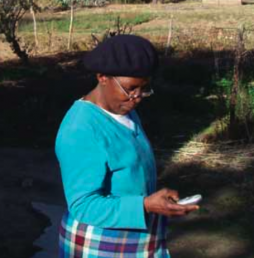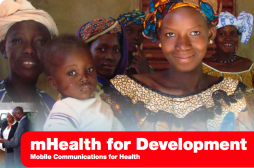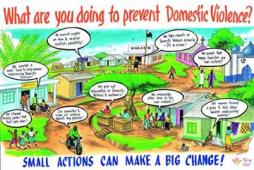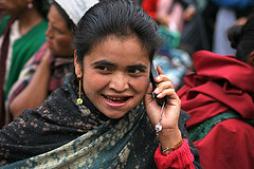Maternal and Women's Health
Posted by LeighJaschke on Jun 18, 2009
Towards the Development of an mHealth Strategy: A literature review data sheet 2340 Views
Author:
Mechael, Patricia N.; Slonininsky, Daniela
Abstract:
This report maps out what is known about a broad range of mobile and wireless technologies and the contributions that they are making towards achieving health care objectives in low and middle income countries.
The report is divided into six sections: overview of mHealth as a critical domain within eHealth, review of health-related applications associated with mobile technologies, exploration of how various technologies are being used to achieve health objectives, documentation of key leaders and partnerships that have emerged to test and expand mHealth in low and middle income countries, critical considerations based on early initiatives and research, and key recommendations for next steps in the area of mHealth.
The report is based on an intensive study of peer-reviewed literature, program evaluation and industry reports, grey literature, and communication with a broad range of stakeholders. Recommendations include that key mHealth stakeholders focus their energies on the testing and scale-up of interventions. These interventions should show promise in achieving the key health outcomes as laid out by the Millenium Development Goals (MDG's) for health. Further, the report recommends that the World Health Organization (WHO) serves as a convener of key partners and a broker of mHealth strategies, information, and frameworks.
The potential of mobile communication technologies to reduce professional isolation, facilitate the work of overstretched human resources, and yield cost savings and efficiency is recognized. However, the report concludes that technological solutions should be designed according to local realities and meet local needs in away that practically and measurably contributes to the MDG's or health.
Posted by KatrinVerclas on Mar 09, 2009
Today is International Women's Day and we are celebrating by featuring innovative women in the MobileActive.org community who are making a difference by using mobiles for social impact. Many of these social innovators are indeed focusing their work on improving the lives of women - their health, incomes, and social and political well-being. We salute you all!
Melissa Loudon is a research officer at the Centre for Spatial Data Management at the University of Capetown in South Africa. She is also a talented mobile developer who used to work at Cell-Life, and she has written extensively for us, testing applications. Her most recent review of mobile tools for social development focused on data collection using a mobile phones.
Posted by KatrinVerclas on Feb 17, 2009
Using mobile phones has enormous potential for increasing access to healthcare for poor people aroundd the world, and for improving clinical outcomes. Now a new association, the mHealth Alliance, has been launched to support this emerging field and increase the scale and impact of the many small prokects around the world.
So new, the Alliance has so far no website, press release, or organization yet, it was announced to the BBC as part of the GSMA World Congress in Barcelona. The mHealth Alliance is currently under the auspices of three foundations, the UN and Rockefeller Foundations in the United States, and the UK-based Vodafone Group Foundation.
Deploying mobiles in health care in developing countries is not only promising for health outcomes, it is also a hot and potentially lucrative business area. There is enormous interest by NGOs, donors, telcoms, mobile vendors, researchers, and governments in the the use of mobile phones for increasing healthcare for the poorest people in the world.
Posted by KatrinVerclas on Dec 02, 2008
In our day-long coverage of innovative HIV/AIDS campaigns, here is one from India. The question: How can you encourage men to use condoms to reduce the incidence of HIV/AIDS? The answer: Drive up sales of condoms with an innovative and often tongue-in-cheek multi-media campaign, including catchy ringtones featuring the jingle Condom Condom.
The BBC World Service Trust, the charitable arm of the BBC, has been running a public health campaign in four states in southern India and has now launched a campaign to make clear that "smart men use condoms."
Here is one scene, played out at a wedding: a mobile ringtone buzzes with a loud refrain "condom! condom!" The BBC Trust writes: "Embarrassing for the person holding the mobile phone? Not a bit of it - the reaction of those around the red-faced man is to see him as smart and responsible."
Posted by sharakarasic on Oct 14, 2008
Yesterday I attended the session "OpenRosa mHealth in Tanzania" presented by Gayo Mhila and Neal Lesh. Gayo told us about CommCare, an OpenRosa mobile data collection application which enables community health workers (CHWs) to easily collect patient data through their mobiles. OpenRosa is a consortium for mobile data collection and decision support.
Community health workers serve poor, rural populations, promote preventative care, convey health information, and collect data. Their challenge in being able to use applications such as CommCare include limited network coverage, the fact that it's hard to charge phones in rural areas (solar charger, anyone?), airtime management of personal calls in the case of granted airtime, and understanding of technology.
I asked Gayo about how the CHW's found patients to survey, especially since privacy is such an issue for the population with HIV and TB. He said that health workers direct patients to go to the NGO to get help, so it is their initiative to work with them.
Another audience member mentioned how complicated navigation on donated cellphones was an issue in her project.
Posted by Esther Nasikye on Sep 26, 2008
Mobile phones are providing organisations and advocates with new ways to reach their communities. Now the Gender Based Violence Prevention Network in collaboration with Women of Uganda Network (WOUGNET) will use text messaging to create awareness about violence against women in Africa.
WOUGNET will be exhibiting in the SIMPlace at MobileActive08 to talk about Texting for Social Action, together with its vendor BulkSMS which has powered previous WOUGNET campaigns.
Posted by CorinneRamey on Jun 27, 2008
Curious how your state ranks on reproductive choice? NARAL Pro-Choice America makes it easy to find out. By texting the word "grade" and the abbreviation of your state to a short code, you get an almost-instantaneous text response with your state's grade and opportunities for more information. "One of the reasons we decided to invest in mobile technology is we want to diversify how we're communicating with people," said Kristin Koch, Deputy Director of Communications at NARAL. NARAL recently began a mobile program -- they're calling it Txt4Choice -- and has been exploring how to use mobile in ways that compliment and integrate into their already developed communications strategy.
Posted by CorinneRamey on Apr 02, 2008
In 2005, Samsung released a phone designed especially for women. The phone, with a "curvaceous, feminine design" included applications like a fragrance and aromatherapy guide, a shopping list, a calorie counter, a biorhythm clock, and a calendar to help women keep track of their periods. "Almost every woman will desire it," wrote one reviewer, in a piece entitled "High tech for the ladies."
Those marketers and reviewers have it all wrong.
For women around the world, mobile phones are not about sexy designs and knowing when it's that time of the month. Mobile phones are slowly changing the lives of women who use them and the communities in which they live. They've created a path out of poverty for many women in the developing world, as microfinance and "phone ladies" running businesses increase in numbers. Mobiles are enabling translation for victims of domestic violence in the United States, provide Ukrainian sex workers a way to safety, and protect Philippine domestic workers in the Middle East. Mobile phones are giving voice to female reporters in Africa and encouraging free speech in Egypt. And as mobile phones become increasingly ubiquitous -- they're already at 3.3 billion and counting -- they are likely to continue to influence the lives and societies of the women who use them in the future.







